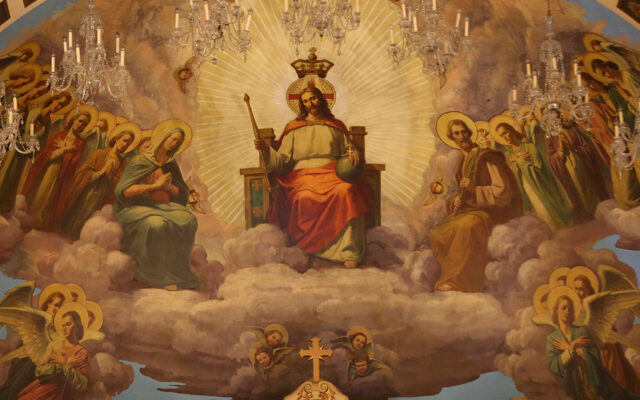The Feast of Christ the King, also known as the Solemnity of Our Lord Jesus Christ, King of the Universe, is a significant liturgical celebration in the Christian calendar.
Instituted by Pope Pius XI in 1925, this feast marks the end of the liturgical year and is celebrated on the last Sunday before Advent.
The essence of this feast lies in the acknowledgment and celebration of the sovereignty of Jesus Christ as the King of all creation.

Historical significance
The establishment of the Feast of Christ the King occurred against a backdrop of social and political unrest in the aftermath of World War I.
Pope Pius XI sought to address the growing secularism and the rise of ideologies that threatened to diminish the role of Christ in society.
By proclaiming Christ as King, the Church aimed to emphasize the ultimate authority of Jesus over all aspects of life.
READ ALSO: SHEIN: 5 must-wears this Christmas
Liturgical observance
The Feast of Christ the King is a vibrant and solemn celebration in the liturgical calendar.
It marks the climax of the Church’s liturgical year, serving as a reminder of the journey of faith, from the anticipation of Advent to the culmination in the kingship of Christ.
The liturgy on this day often includes readings and hymns that emphasize the kingship of Christ and the universal reign of God.
Symbolism of kingship

The title “King” is not used in a conventional earthly sense but rather in a spiritual and cosmic context. Christ’s kingship transcends political and temporal boundaries, signifying His authority over the entire universe.
The feast underscores the belief that Christ is the Alpha and Omega, the beginning and the end, and that His reign extends beyond earthly realms to the eternal.
Theological implications
The Feast of Christ the King holds profound theological significance. It serves as a reminder of Christ’s redemptive work and the fulfillment of God’s plan for salvation.
By acknowledging Jesus as King, Christians affirm their commitment to follow His teachings and to participate in building the Kingdom of God on Earth.
Relevance in modern times
In the face of contemporary challenges and uncertainties, the Feast of Christ the King remains relevant.
It calls Christians to reflect on the lordship of Christ in their lives and to align their values with the teachings of the Gospel.
In a world often marked by power struggles and conflicting ideologies, the feast invites believers to recognize Christ as the ultimate source of truth and justice.
Cultural celebrations
The Feast of Christ the King is celebrated with various cultural expressions around the world. Processions, liturgical dances, and special prayers characterize these celebrations.
Communities come together to honor the universal kingship of Christ and to express gratitude for the gift of salvation.
READ ALSO: Rapture: Israel-Hamas tension, other signs of Christ’s imminent coming
Conclusion
In conclusion, the Feast of Christ the King is a powerful and meaningful observance within the Christian liturgical calendar.
It is a time to reflect on the sovereignty of Christ, acknowledging Him not only as a historical figure but as the eternal King who reigns over all creation.
As Christians worldwide unite in celebrating this feast, they renew their commitment to live according to the values of Christ’s Kingdom, fostering a sense of unity and hope for the future.








